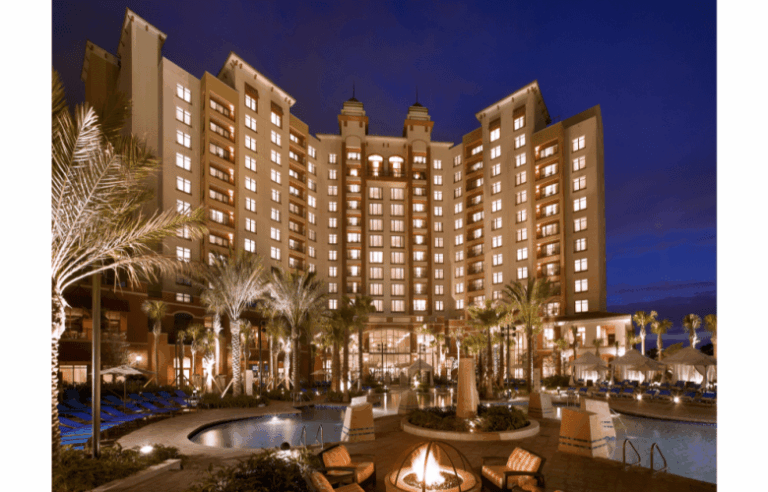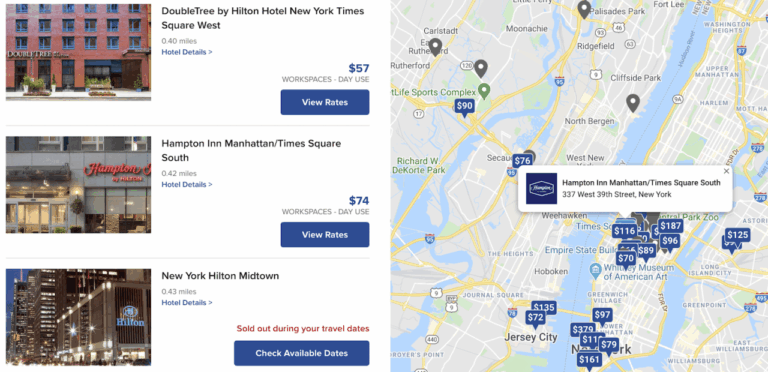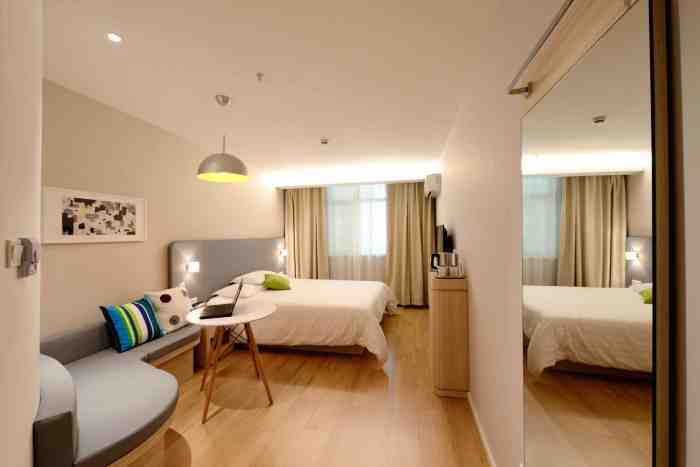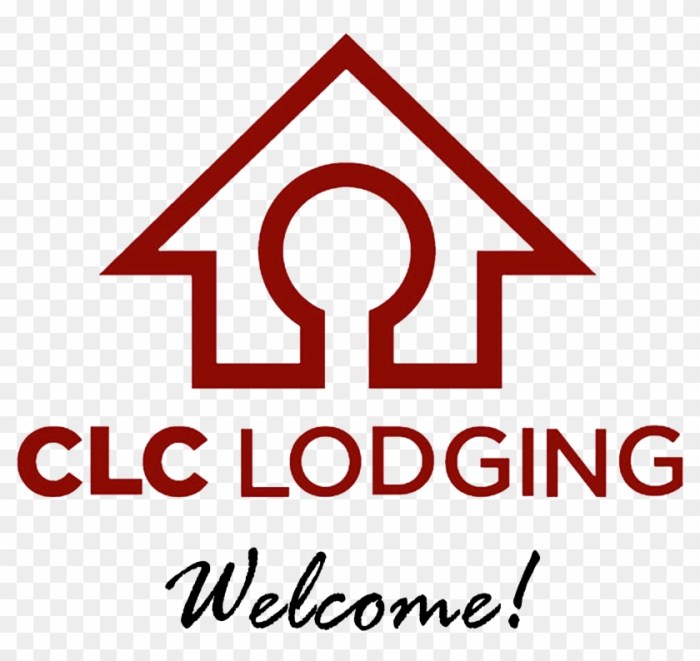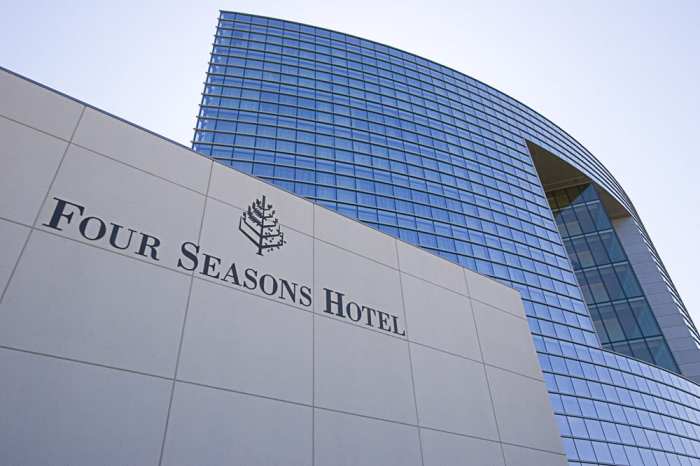Business Travel Hotels A Comprehensive Guide
Business travel hotels set the stage for successful professional journeys, providing a blend of comfort, convenience, and connectivity for travelers. This comprehensive guide delves into the nuances of the business travel hotel market, exploring its key characteristics, factors influencing traveler choices, and emerging trends.
From understanding the diverse needs of business travelers to evaluating different hotel types, this overview highlights the critical elements that contribute to a positive experience. This includes a deep dive into the specific amenities and services tailored for the modern business traveler, as well as global perspectives on the industry.
Overview of Business Travel Hotels
Business travel hotels cater specifically to the needs of professionals traveling for work. They differentiate themselves from leisure hotels by prioritizing amenities and services that enhance productivity and efficiency for their guests. This specialized focus has created a distinct market segment, driven by factors that are both practical and increasingly technology-centric.
The market for business travel hotels is a significant component of the global hospitality industry. Its success is directly linked to the ever-increasing volume of business travel, and the consequent demand for accommodations that are functional and convenient. This market segment is highly competitive, demanding hotels to continually innovate and adapt to evolving traveler expectations.
Key Characteristics of Business Travel Hotels
Business travel hotels often exhibit distinct design elements and functional features that distinguish them from other types of hotels. Emphasis is placed on ergonomic design, facilitating work and relaxation. These hotels typically include well-equipped meeting rooms, high-speed internet access, and modern workspaces. They frequently feature 24/7 business centers and offer extensive services to support productivity, such as print and fax services.
Factors Driving Demand for Business Travel Hotels
Several factors contribute to the ongoing demand for business travel hotels. The global economy’s dependence on international and domestic business travel fuels this demand. Technological advancements, allowing for remote work and virtual meetings, also contribute, with business travelers needing convenient and reliable access to technology and workspaces. Additionally, companies prioritize cost-effective travel solutions and accommodations for their employees, making business travel hotels a logical choice.
Types of Business Travelers and Their Needs
Different business travelers have diverse needs and preferences. Executives often prioritize upscale accommodations, high-speed internet, and dedicated meeting spaces. Sales representatives, frequently on the road, value convenient access to transportation and networking opportunities. Consultants, project managers, and other professionals may prioritize flexible workspaces and collaborative areas. This diversity necessitates hotels to cater to specific needs within their business travel clientele.
Role of Technology in Enhancing the Business Travel Hotel Experience, Business Travel Hotels
Technology plays a crucial role in enhancing the guest experience in business travel hotels. High-speed Wi-Fi is now a standard feature, allowing seamless connectivity for work. Mobile check-in and check-out procedures streamline the guest experience. Hotels are increasingly using digital platforms to manage bookings, communicate with guests, and provide real-time information. Interactive room controls, allowing guests to manage lighting and temperature, are becoming increasingly common. This technological integration enhances efficiency and elevates the overall stay experience.
Common Amenities in Business Travel Hotels
The following table lists common amenities found in business travel hotels:
| Amenity | Description |
|---|---|
| High-speed Wi-Fi | Reliable and fast internet access throughout the hotel. |
| Meeting Rooms | Well-equipped spaces for conferences, presentations, and meetings. |
| Business Center | A dedicated area with computers, printers, and fax machines. |
| 24/7 Concierge Services | Round-the-clock assistance for various needs, including arranging transportation and appointments. |
| Fitness Center | A gym or fitness area for guests to maintain their fitness routines. |
| Restaurant/Cafe | Food service options, catering to various dietary needs and preferences. |
| Transportation Services | Transportation options, such as shuttles or airport transfers, to support travel arrangements. |
| Airport Transfers | Direct transport to/from airports for business travelers. |
| Dedicated Workspaces | Areas equipped for productive work, possibly with ergonomic chairs and desks. |
Factors Influencing Hotel Choice for Business Travelers
Business travelers prioritize hotels that align with their specific needs and preferences. These preferences often revolve around factors like location, amenities, and service quality. Understanding these influences helps hotels tailor their offerings to attract and retain this important segment of the market.
Top 5 Factors Influencing Hotel Selection
Business travelers are meticulous in their hotel choices, evaluating several critical factors. The five most influential factors are generally location, price, amenities, service, and brand reputation. These elements significantly impact the overall experience and satisfaction of the business traveler.
- Location: Proximity to business centers, airports, and key destinations is crucial for efficient travel and maximizing work time. Travelers often prioritize locations with easy access to transportation hubs and convenient connections to conference centers, meeting venues, or key client locations.
- Price: Cost-effectiveness is paramount for business travelers, often on tight budgets. Hotels offering competitive rates and value-added packages are highly sought after.
- Amenities: Essential amenities such as high-speed internet, comfortable rooms, and well-equipped meeting rooms are significant considerations. The presence of these amenities directly influences the efficiency and comfort of the business traveler’s stay.
- Service: Professional and helpful staff contribute significantly to the overall experience. Prompt and courteous service, coupled with assistance with logistical needs, plays a key role in customer satisfaction.
- Brand Reputation: A strong brand reputation often translates into consistent quality, reliability, and a recognized level of service. Established brands frequently offer travelers a sense of security and a predictable standard of service.
Importance of Location and Accessibility
The location of a hotel is paramount for business travelers. Proximity to business districts, airports, and key destinations directly impacts travel time and productivity. Easy access to public transportation, such as subway lines, bus routes, or ride-sharing services, is a strong indicator of a hotel’s convenience. For example, a hotel situated near a major convention center will likely attract more business travelers who need easy access to meeting rooms and exhibition halls. Accessibility to local attractions or amenities can also be a significant factor.
Significance of Meeting Rooms and Conference Facilities
Well-equipped meeting rooms and conference facilities are essential for business travelers. These spaces are often required for conducting presentations, meetings, or collaborative work sessions. The size, technology (projectors, audio-visual equipment), and layout of these facilities are critical considerations. For example, a hotel with dedicated breakout rooms catering to different meeting sizes offers more flexibility to accommodate various business needs.
Role of Internet Connectivity and Technology Infrastructure
High-speed internet connectivity is crucial for business travelers, enabling seamless communication and access to vital information. The reliability and speed of the internet connection directly impact work productivity. Furthermore, the availability of modern technology infrastructure, such as reliable Wi-Fi access, ensures smooth operations. For instance, a hotel offering dedicated high-speed Wi-Fi access throughout the premises enhances productivity and provides a better overall experience for the business traveler.
Impact of Hotel Staff Service Quality
The quality of hotel staff service directly influences business traveler satisfaction. Friendly, professional, and responsive staff are highly valued. The ability of staff to assist with logistical tasks, such as booking transportation or making restaurant reservations, adds considerable value. For example, a hotel that consistently provides exceptional customer service often earns repeat business from satisfied business travelers.
Hotel Brand Comparison
| Hotel Brand | Strengths (Business Traveler Focus) | Weaknesses (Potential Considerations) |
|---|---|---|
| Hilton Hotels | Extensive global presence, recognized brand, reliable service, typically good meeting room facilities | Potentially higher prices compared to some budget options |
| Marriott Hotels | Large network, various property types to cater to diverse needs, often excellent service and amenities | Room sizes or layouts may vary depending on a specific location |
| Hyatt Hotels | Known for luxurious amenities, high-quality service, excellent meeting rooms, and often a prestigious reputation | It might be slightly more expensive than other options |
| IHG Hotels | Wide range of brands catering to various budgets and needs, frequently offers good value for money | Service quality can vary between different IHG brands |
| Accor Hotels | Strong presence in Europe and other regions, diverse brands offering varying levels of service and amenities | Potentially less familiar to some business travelers in other parts of the world |
Trends and Innovations in Business Travel Hotels
The business travel hotel industry is constantly evolving, adapting to changing traveler needs and technological advancements. This dynamic environment presents exciting opportunities for hotels to enhance the guest experience and stay competitive. Modern business travelers seek more than just a place to sleep; they desire seamless experiences that support their work and well-being.
The increasing importance of sustainability and a desire for flexible work arrangements are significant drivers of innovation in the industry. Hotels are responding by incorporating eco-friendly practices, offering flexible spaces, and providing specialized services tailored to the modern business traveler. Technological advancements further enhance the guest experience, leading to personalized services and streamlined workflows.
Sustainability and Eco-Friendly Practices
Hotels are increasingly recognizing the importance of environmental responsibility. This includes reducing their carbon footprint through energy-efficient systems, using sustainable materials in construction and operations, and promoting responsible waste management. For instance, many hotels are now implementing programs to reduce water consumption, utilizing renewable energy sources, and partnering with local suppliers to minimize their environmental impact. These initiatives not only appeal to environmentally conscious travelers but also demonstrate a commitment to long-term sustainability and profitability. Furthermore, hotels are incorporating eco-friendly amenities like locally sourced food, reusable products, and initiatives to minimize single-use plastics.
Flexible Work Arrangements and Hotel Design
The rise of remote work and flexible work arrangements has prompted hotels to adapt their spaces and services. Many are now offering dedicated workspaces, high-speed internet access, and quiet zones to support productive work sessions. Furthermore, the design of hotel rooms and common areas is evolving to accommodate flexible work needs. This may involve providing adaptable furniture, larger desks, and spaces for collaboration.
Innovative Hotel Services Tailored for Business Travelers
Hotels are implementing innovative services specifically designed for business travelers. These services often include concierge-style support for booking appointments, arranging transportation, and providing access to exclusive networking events. Some hotels offer specialized amenities like personalized travel itineraries, business meeting rooms, and access to executive lounges. The aim is to streamline the traveler’s experience, maximizing their productivity and enjoyment during their stay.
Technology Integration in Enhancing Guest Experience
Technology plays a crucial role in enhancing the guest experience. Hotels are leveraging mobile check-in, personalized recommendations, and interactive digital displays to improve efficiency and provide a more seamless experience. Smart technologies, such as voice-activated assistants and integrated reservation systems, are becoming increasingly prevalent.
Table: Technology Integrations in Business Travel Hotels
| Technology Integration | Description | Benefits |
|---|---|---|
| Mobile Check-in/Check-out | Guests can use their mobile devices to manage their stay, including check-in, check-out, and room requests. | Reduces wait times, enhances convenience, and streamlines the process. |
| Personalized Recommendations | Hotels use data analytics to provide tailored recommendations for dining, activities, and local experiences. | Improves guest satisfaction by offering relevant and personalized options. |
| Interactive Digital Displays | Displays provide real-time information, including flight schedules, local attractions, and hotel services. | Provides valuable information and enhances guest experience. |
| Voice-Activated Assistants | Guests can use voice commands to control room features, request services, and access information. | Provides hands-free operation and a more convenient experience. |
| Integrated Reservation Systems | Streamlined booking and reservation processes, often connecting to other business tools. | Improves efficiency and reduces administrative burdens for both guests and staff. |
Comparing Different Hotel Types for Business Travel
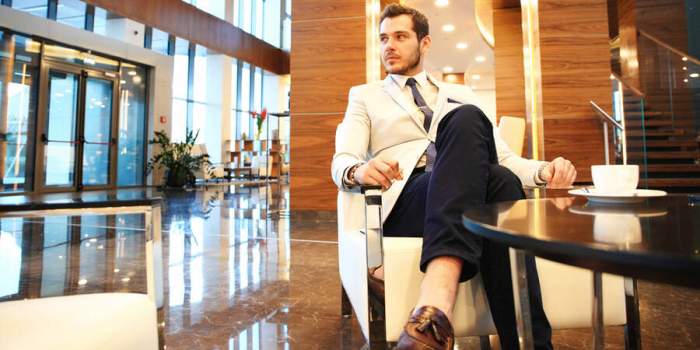
Source: paxes.com
Choosing the right hotel for a business trip is crucial for productivity and a positive experience. The diverse range of hotel types caters to varying needs and budgets, impacting both the work environment and overall trip satisfaction. Understanding the distinctions between business, luxury, budget, and extended-stay hotels is vital for making informed decisions.
Business Hotels
Business hotels are designed with the needs of the modern business traveler in mind. These establishments typically offer high-speed internet access, meeting rooms, and other amenities that support work activities. They are often located in central business districts or near major transportation hubs. The emphasis on efficiency and practicality is a key feature, making them suitable for individuals focused on maximizing their work time.
Luxury Hotels
Luxury hotels provide a superior level of comfort and service, often including upscale amenities such as gourmet restaurants, spas, and concierge services. While these hotels are attractive for their premium experience, the higher price point necessitates careful consideration of the business trip’s budget and the value proposition. The luxurious ambiance might be a distraction for some travelers focused on productivity.
Budget Hotels
Budget hotels offer a cost-effective alternative for business travelers seeking basic accommodations. These establishments usually prioritize affordability over lavish amenities, providing essential services like clean rooms and reliable Wi-Fi. While they may lack the extensive features of business or luxury hotels, budget options are suitable for travelers on tight budgets or those who prioritize affordability over extravagant surroundings. The potential trade-offs in comfort and convenience should be carefully weighed.
Extended-Stay Hotels
Extended-stay hotels cater to business travelers requiring longer stays. These hotels typically offer larger rooms, kitchenettes, and other amenities conducive to extended periods of accommodation. The extended stay often results in significant savings compared to a series of daily hotel bookings. This option is best suited for employees on longer business assignments.
Comparison Table
| Hotel Type | Pricing | Amenities | Services |
|---|---|---|---|
| Business | Mid-range | High-speed internet, meeting rooms, and business centers | Concierge, 24/7 reception |
| Luxury | High | Gourmet restaurants, spas, concierge, and premium amenities | Exceptional service, personalized attention |
| Budget | Low | Basic rooms, reliable Wi-Fi, clean facilities | Basic check-in/check-out, limited amenities |
| Extended-Stay | Mid-range to high | Kitchenettes, larger rooms, and laundry facilities | Extended stay options, long-term accommodation packages |
Suitability Factors
The choice of hotel type depends on several factors, including the duration of the trip, budget, and desired level of comfort. A short trip might favor a business hotel for its convenience, while a longer assignment might benefit from the extended-stay option’s cost-effectiveness. A luxury hotel may be ideal for special events or representing a company in a high-profile environment. Budget hotels are appropriate for cost-conscious travelers.
Value for Money
Value for money is critical in the business travel sector. A hotel that offers a good balance between price and quality amenities will contribute to the overall efficiency and success of a business trip. This means that a mid-range hotel with excellent Wi-Fi and convenient access to transportation can often be a better choice than a budget hotel lacking these features.
Room Types
| Hotel Type | Room Types |
|---|---|
| Business | Standard rooms, executive suites, and meeting rooms |
| Luxury | Deluxe rooms, suites, presidential suites |
| Budget | Standard rooms, possibly basic studio rooms |
| Extended-Stay | Studio apartments, one-bedroom suites, two-bedroom suites |
Specific Amenities and Services for Business Travelers

Source: cloudfront.net
Modern business travel demands more than just a comfortable bed and a clean bathroom. Today’s business traveler prioritizes efficiency and access to tools that facilitate productivity. Hotels must cater to these needs with a range of carefully curated amenities and services.
High-speed internet access is paramount for today’s business travelers. A reliable and high-bandwidth connection is crucial for conducting video conferences, sending emails, and accessing important documents. Hotels need to provide robust internet infrastructure to support these essential activities. Poor internet service can significantly hinder a traveler’s productivity and negatively impact their experience.
High-Speed Internet Access
Reliable, high-speed internet is a critical component of a successful business travel experience. It enables seamless communication, collaboration, and access to crucial information, fostering efficiency and productivity. Hotels must prioritize the provision of a consistently fast and dependable connection throughout the entire property. This extends beyond just the guest rooms, encompassing common areas and meeting spaces.
Business-Friendly Amenities
Business travelers frequently require access to essential tools for work. Printing services, fax machines, and secure meeting spaces are vital. These amenities enable travelers to complete tasks promptly and efficiently, avoiding delays and frustration. Offering these services demonstrates a commitment to supporting the needs of the business traveler.
Printing Services, Fax Machines, and Secure Meeting Spaces
Printing services, fax machines, and secure meeting spaces are essential for a smooth business travel experience. These facilities enable travelers to quickly print documents, send faxes, and hold productive meetings. Providing such amenities enhances the overall functionality and productivity of the business traveler’s stay. Secure meeting spaces are crucial for confidentiality and data protection.
Concierge Services and Support Staff
Dedicated concierge services and knowledgeable support staff are invaluable assets in a business travel hotel. These individuals can assist travelers with arranging appointments, coordinating transportation, securing restaurant reservations, and providing guidance on local attractions. A responsive and helpful staff creates a positive and supportive environment.
Modern Business Center
A well-equipped business center is a hallmark of a business-focused hotel. This space should offer ergonomic workstations, high-speed internet access, printers, scanners, and comfortable seating. The availability of shared workspaces and meeting rooms with appropriate technology enhances the traveler’s work experience. Ideally, the center should have a calming atmosphere to support focus and productivity.
Unique and Specialized Services
Hotels can differentiate themselves by offering unique services tailored to the specific needs of business travelers. Examples include dedicated airport transfers, personalized itineraries, and partnerships with local businesses offering specialized services. These personalized touches can create a memorable and efficient experience.
Key Services and Amenities for Business Travel Hotels
| Category | Service/Amenity | Importance |
|---|---|---|
| Connectivity | High-speed internet access | Essential for communication and productivity. |
| Business Tools | Printing services | Enables document handling and task completion. |
| Business Tools | Fax machines | Facilitates communication via fax. |
| Business Tools | Secure meeting spaces | Provides a professional and secure environment for meetings. |
| Support Staff | Concierge services | Assists travelers with various tasks and information. |
| Workspaces | Modern business center | Offers a dedicated workspace for business tasks. |
Strategies for Enhancing the Business Travel Hotel Experience
Delivering exceptional experiences for business travelers is paramount for hotels seeking to attract and retain corporate clientele. A well-structured approach to enhancing the experience fosters loyalty, positive word-of-mouth referrals, and ultimately, increased profitability. This section Artikels’ key strategies to achieve these objectives.
Personalized Service for Business Travelers
Providing tailored service to business travelers is crucial for satisfaction. Recognizing individual preferences and anticipating needs leads to a more positive experience. Understanding a traveler’s frequent travel patterns, preferred amenities, and corporate preferences empowers staff to proactively meet their requirements. This proactive approach goes beyond simply fulfilling requests; it demonstrates a genuine understanding of the traveler’s needs, thus enhancing their perception of the hotel. This personalized approach can include proactively offering preferred room types, catering to specific dietary needs, and ensuring seamless connections to important business contacts.
Building Strong Relationships with Corporate Clients
Cultivating strong relationships with corporate clients is vital for sustained business. This involves more than just a transactional relationship; it necessitates understanding corporate travel policies, budgets, and preferences. Regular communication with key decision-makers, offering tailored packages, and demonstrating responsiveness to corporate requests builds trust and strengthens relationships. This approach fosters a sense of partnership, which leads to increased bookings and referrals. Direct communication, including newsletters and personalized invitations to corporate events, can also help maintain contact and reinforce the hotel’s commitment to the client’s needs.
Improving Customer Satisfaction Through Feedback Mechanisms
Implementing robust feedback mechanisms is essential for continuous improvement. This includes actively soliciting feedback from guests through various channels, such as online surveys, feedback cards, and direct interaction with staff. Gathering and analyzing this data provides valuable insights into areas for improvement. A comprehensive approach should include both quantitative and qualitative feedback, enabling a holistic understanding of guest experiences. Using online review platforms and social media listening tools can also provide crucial insights into public perceptions and opinions.
Creating a Positive Brand Image for Business Travel Hotels
Developing a strong brand image for business travel hotels involves projecting professionalism, reliability, and a commitment to quality. This is achieved through consistent service delivery, adherence to high standards, and a commitment to maintaining a clean, modern, and efficient environment. The hotel’s website, social media presence, and physical environment all contribute to the overall brand image. A clear understanding of the target audience and the unique value proposition of the hotel is crucial in shaping a positive and compelling brand image.
Loyalty Programs and Rewards for Frequent Business Travelers
Loyalty programs tailored for frequent business travelers offer significant advantages. These programs recognize and reward repeat business, fostering a sense of appreciation and loyalty. Points-based systems, exclusive access to amenities, and personalized recognition for milestones are all effective methods for engaging frequent travelers. These programs not only incentivize repeat business but also provide valuable insights into traveler preferences and needs. Implementing tiered reward levels based on travel frequency can further enhance the program’s appeal.
Customer Feedback Mechanisms
| Feedback Mechanism | Effectiveness | Description |
|---|---|---|
| Online Surveys | High | Easy to administer, collect large amounts of data, and often quantifiable |
| Feedback Cards | Moderate | Provides immediate feedback, can be used in conjunction with other methods |
| Direct Interaction with Staff | High | Allows for immediate resolution of issues and gathering qualitative data |
| Online Review Platforms | High | Provides insight into public perception and can drive improvements |
| Social Media Listening | Moderate | Provides real-time feedback and identifies trends, but can be overwhelming |
This table illustrates the effectiveness of different customer feedback mechanisms, with online surveys and direct interaction with staff often producing the highest levels of insight. The choice of mechanism will depend on the specific goals and resources available.
Global Perspectives on Business Travel Hotels
Understanding the diverse landscape of business travel necessitates a global perspective. Business travelers’ needs and expectations vary significantly across different regions, influenced by cultural norms, economic conditions, and local regulations. This necessitates a nuanced approach for hotels catering to this specific market.
Hotels worldwide are increasingly adapting their offerings to meet these diverse needs, demonstrating a commitment to providing a seamless and culturally sensitive experience. This adaptation is crucial for attracting and retaining business clientele, showcasing an understanding of global business travel trends.
Regional Variations in Business Travel Hotel Practices
Different regions exhibit distinct preferences in business travel hotels. For instance, Asian hotels often emphasize spacious rooms, high-speed internet, and convenient access to local dining options, reflecting the importance of comfortable and convenient experiences. European hotels may prioritize sophisticated design, high-end amenities, and strong emphasis on meeting spaces, highlighting the significance of professional settings. North American hotels often balance these aspects with a focus on practicality and efficiency, acknowledging the fast-paced nature of business travel in the region.
Cultural Nuances Affecting Business Travel Preferences
Cultural nuances play a significant role in shaping business travel preferences. For example, in some cultures, building rapport and establishing personal connections are paramount before engaging in formal business discussions. Hotels in these regions may offer communal spaces and opportunities for informal networking, catering to this cultural preference. Conversely, other cultures may prioritize efficiency and direct communication, prompting hotels to focus on streamlined check-in/check-out processes and easily accessible meeting rooms.
Hotel Adaptation to Local Customs and Regulations
Hotels demonstrate a commitment to adapting to local customs and regulations. This might involve offering meals that align with local dietary restrictions, adhering to specific business etiquette norms, or ensuring compliance with local regulations regarding accessibility. Examples include providing halal meals in Muslim-majority countries or adhering to specific building codes in regions with stringent regulations.
Impact of Local Economies on Business Travel Hotel Prices and Amenities
Local economies significantly influence business travel hotel prices and amenities. In regions with high economic growth, hotels may offer premium amenities and charge higher prices to reflect the increased demand. Conversely, in regions with developing economies, hotels may offer more basic amenities at lower prices, reflecting the prevailing economic conditions.
Popular Destinations for Business Travelers Worldwide
Major business travel destinations include cities with strong economic hubs and significant international business activity. Examples include London, New York, Tokyo, and Singapore. These cities often attract a large volume of business travelers due to the presence of international corporations and conferences.
Comparison of Business Travel Hotel Standards Across Regions
| Region | Key Amenities | Cultural Considerations | Pricing Trends |
|---|---|---|---|
| Asia | Spacious rooms, high-speed internet, and local dining options | Emphasis on relationship-building, a comfortable environment | Moderate to high, depending on the city |
| Europe | Sophisticated design, high-end amenities, and meeting spaces | Efficiency and direct communication are valued | Generally higher than in Asia, but with variations |
| North America | Practicality, efficiency, balance of amenities | Fast-paced environment, strong focus on functionality | High, with variations based on location |
Conclusion
In conclusion, the business travel hotel industry is a dynamic and evolving sector, constantly adapting to the needs of modern professionals. Understanding the factors that influence hotel choices, recognizing emerging trends, and prioritizing personalized service are crucial for success in this market. The key takeaways highlight the importance of location, technology, and personalized service in delivering a superior experience for business travelers.
